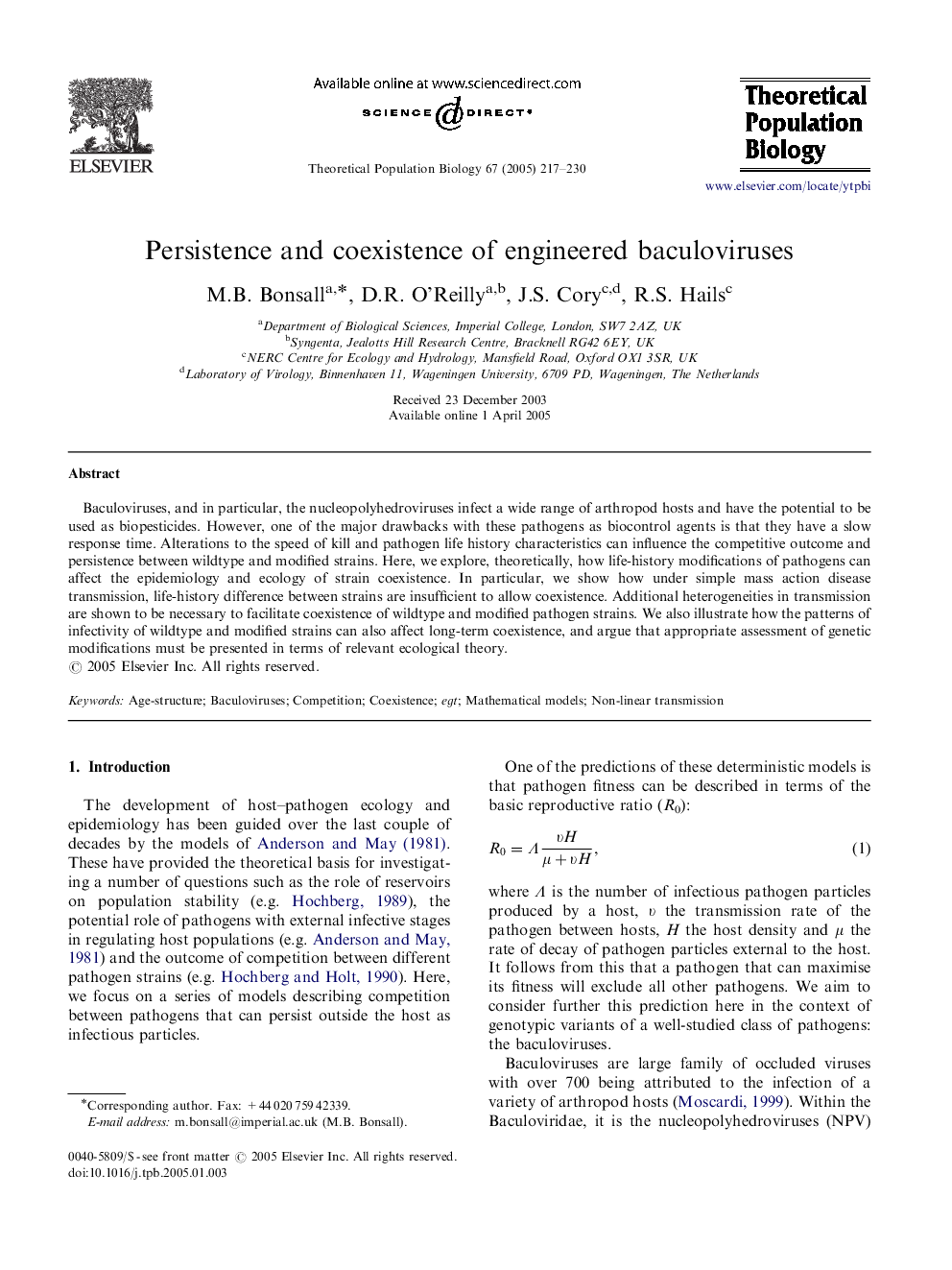| Article ID | Journal | Published Year | Pages | File Type |
|---|---|---|---|---|
| 9471425 | Theoretical Population Biology | 2005 | 14 Pages |
Abstract
Baculoviruses, and in particular, the nucleopolyhedroviruses infect a wide range of arthropod hosts and have the potential to be used as biopesticides. However, one of the major drawbacks with these pathogens as biocontrol agents is that they have a slow response time. Alterations to the speed of kill and pathogen life history characteristics can influence the competitive outcome and persistence between wildtype and modified strains. Here, we explore, theoretically, how life-history modifications of pathogens can affect the epidemiology and ecology of strain coexistence. In particular, we show how under simple mass action disease transmission, life-history difference between strains are insufficient to allow coexistence. Additional heterogeneities in transmission are shown to be necessary to facilitate coexistence of wildtype and modified pathogen strains. We also illustrate how the patterns of infectivity of wildtype and modified strains can also affect long-term coexistence, and argue that appropriate assessment of genetic modifications must be presented in terms of relevant ecological theory.
Related Topics
Life Sciences
Agricultural and Biological Sciences
Agricultural and Biological Sciences (General)
Authors
M.B. Bonsall, D.R. O'Reilly, J.S. Cory, R.S. Hails,
